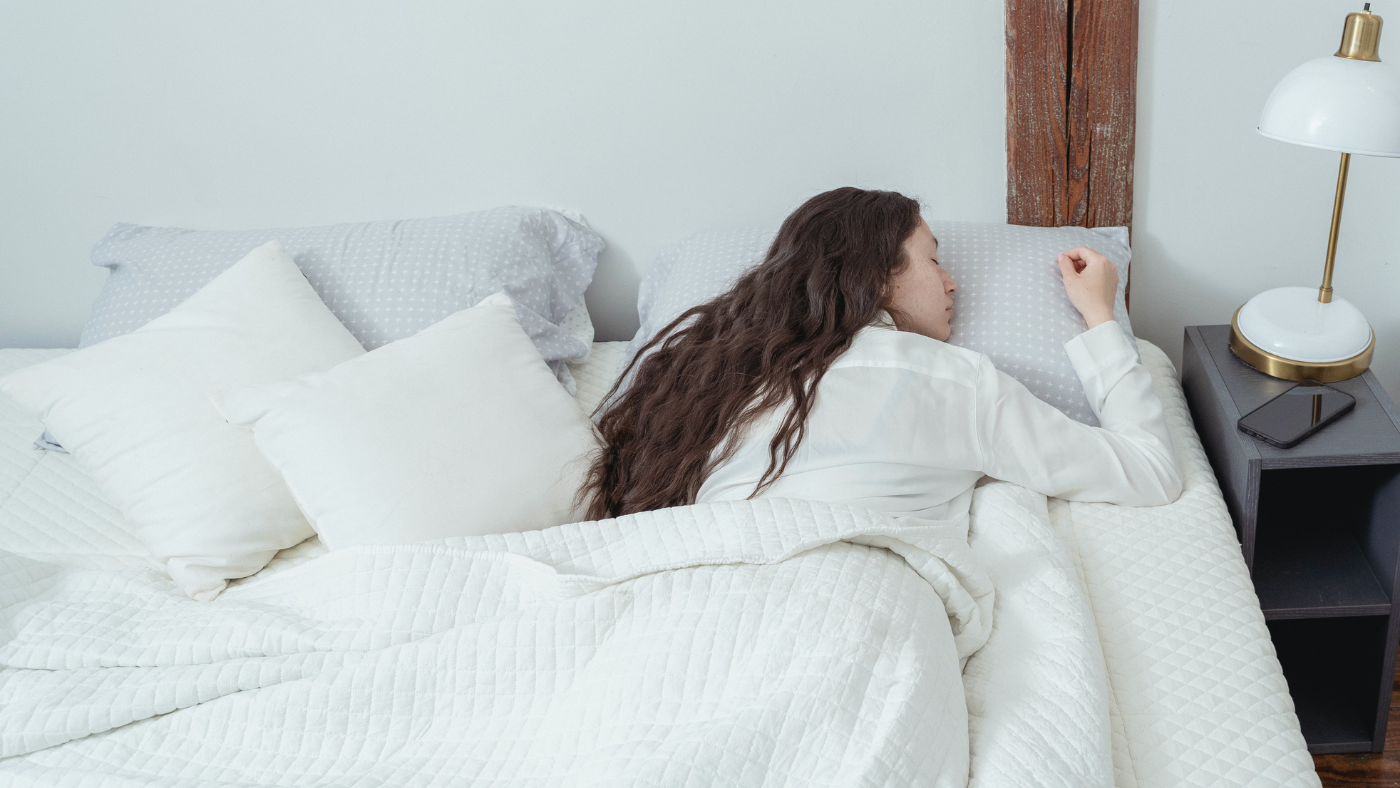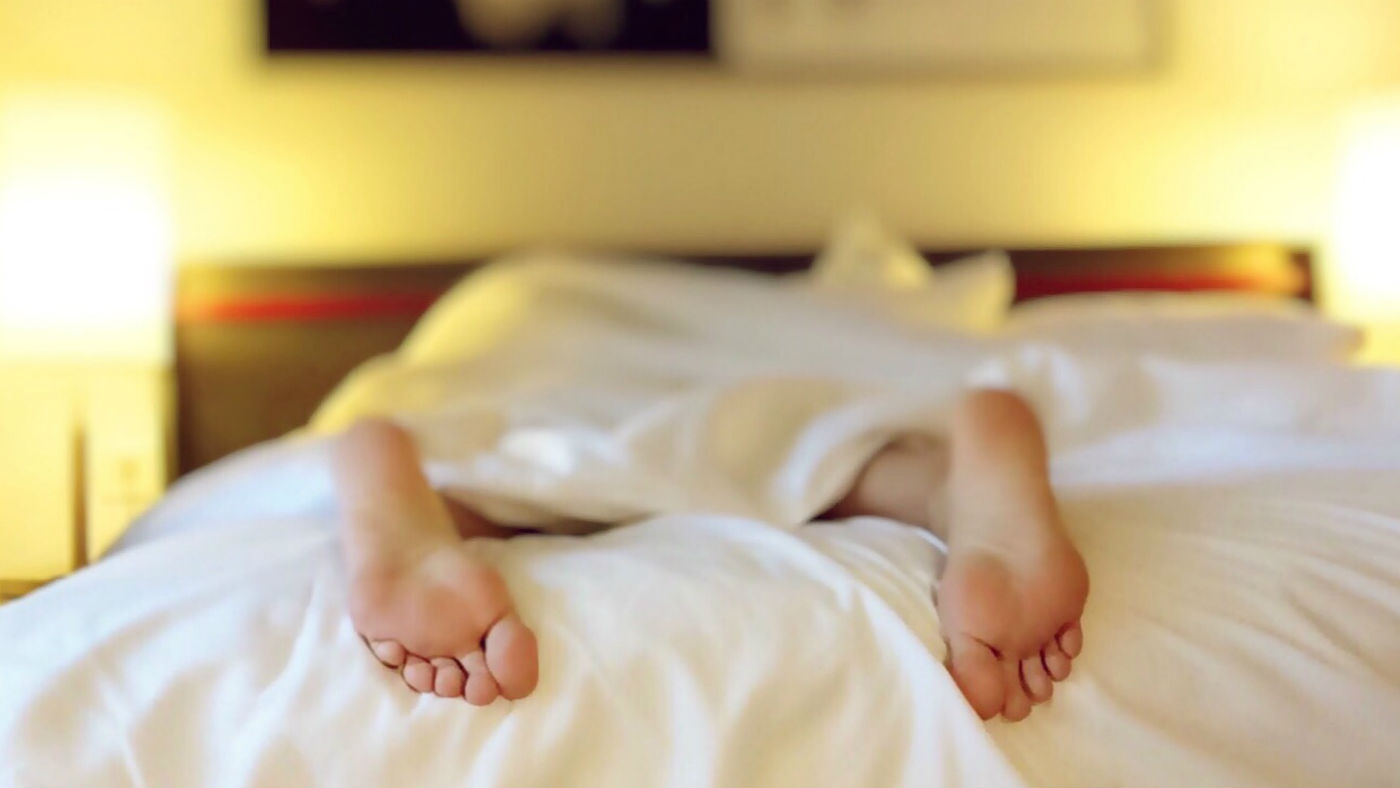How the time you go to sleep affects your heart
Switching off after midnight puts heart at greater risk of disease, study finds

A free daily email with the biggest news stories of the day – and the best features from TheWeek.com
You are now subscribed
Your newsletter sign-up was successful
The time you drift off to sleep for the night could have significant implications for the health of your heart, new research has found.
A study that examined if there is “an optimal time to nod off… when it comes to heart health” has discovered that there could be a link between the two, said The Guardian.
Data from 88,026 participants was collected using wrist-worn devices for the study published in European Heart Journal – Digital Health. Accelerometers measured when participants drifted off and woke up over the course of seven days, and researchers then followed up 5.7 years later, on average, to learn whether the participants had received a new diagnosis of cardiovascular disease. They found that 3.6% of the participants had done, a total of 3,172 people.
The Week
Escape your echo chamber. Get the facts behind the news, plus analysis from multiple perspectives.

Sign up for The Week's Free Newsletters
From our morning news briefing to a weekly Good News Newsletter, get the best of The Week delivered directly to your inbox.
From our morning news briefing to a weekly Good News Newsletter, get the best of The Week delivered directly to your inbox.
It appears that the trick to better heart health is a bedtime that’s “not too early and not too late”, said The Guardian. The analysis found the “sweet spot” to be between 10pm and 10.59pm, with people falling asleep during that time the least at risk of a future heart condition. People whose sleep onset time (SOT) fell on or after midnight were comparatively 25% more likely to develop a cardiovascular disease.
Falling alseep before 10pm was also found to put participants at risk. Though only 132 people who later developed heart conditions were found to fall into this category, participants nodding off before 10pm were found to be at a 24% increased risk of heart disease.
The relationship between bedtimes and heart health appears to be related to our body clocks. A human’s mental and physical functioning is regulated by its circadian rhythm, its own “24-hour internal clock”, study author Dr David Plans, from Exeter University, explained.
“While we cannot conclude causation from our study, the results suggest that early or late bedtimes may be more likely to disrupt the body clock, with adverse consequences for cardiovascular health,” he said in the Daily Mirror.
A free daily email with the biggest news stories of the day – and the best features from TheWeek.com
Participants also filled out “questionnaires about their demographic, health and lifestyle choices” before taking part in the study. The researchers found that people with an SOT after midnight were more likely to be smokers and have a history of diabetes or high blood pressure.
And sleeping for a shorter period of time can increase the likelihood of future conditions. Women, who made up 58% of the participants, were also found to be at greater risk. Plans explained this may be down to a “sex difference in how the endocrine system repsonds to a disruption in circadian rhythm”, said Metro.
However, he also noted that age could be a factor, as women’s risk of developing cardiovascular disease increases post-menopause, “meaning there may be no difference in the strength of association between women and men”.
The findings are cause for further research into sleep timings as a heart health risk factor, particularly for women, the authors concluded.
-
 Switzerland could vote to cap its population
Switzerland could vote to cap its populationUnder the Radar Swiss People’s Party proposes referendum on radical anti-immigration measure to limit residents to 10 million
-
 Political cartoons for February 15
Political cartoons for February 15Cartoons Sunday's political cartoons include political ventriloquism, Europe in the middle, and more
-
 The broken water companies failing England and Wales
The broken water companies failing England and WalesExplainer With rising bills, deteriorating river health and a lack of investment, regulators face an uphill battle to stabilise the industry
-
 Headband can put an end to nightmares
Headband can put an end to nightmaresfeature And other stories from the stranger side of life
-
 The Week Unwrapped: Twitter vs India, digital amnesia and sleepless nights
The Week Unwrapped: Twitter vs India, digital amnesia and sleepless nightspodcast Why is the Indian government suppressing social media? Have we given up using our memories? And why are so few of us getting a good night’s sleep?
-
 Can lack of sleep make you fat?
Can lack of sleep make you fat?Speed Read New study suggests just one sleepless night can make your body store extra fat